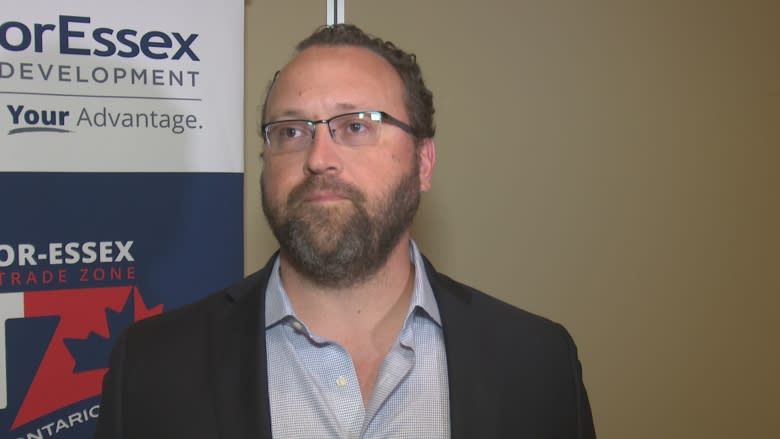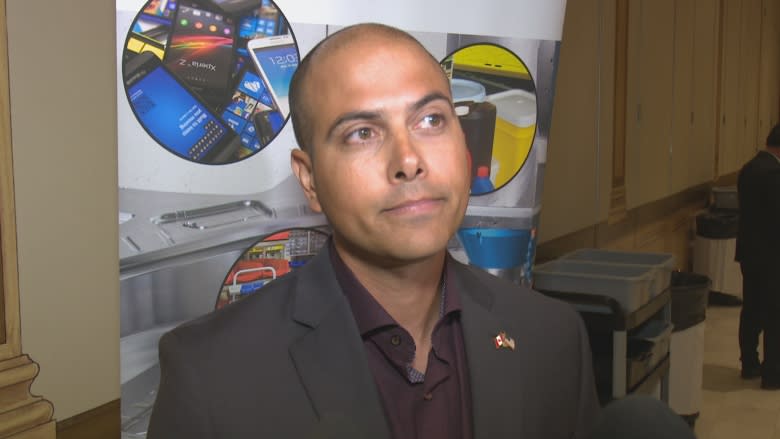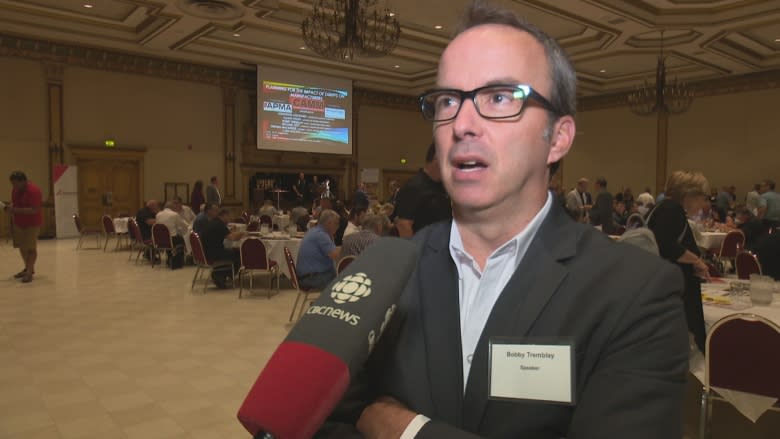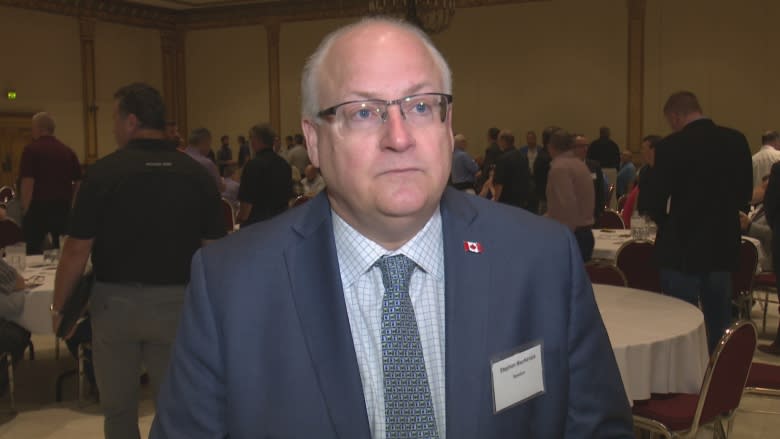'It's been really tough,' manufacturers meet to discuss tariff impact
Manufacturers met at a banquet hall in Tecumseh, Ont. Wednesday to talk about the ongoing tariff war on both sides of the border — and to come up with a plan to handle the consequences.
With tariffs on aluminum and steel already in place on both sides of the border, the president of the Automotive Parts Manufacturer's Association thinks the auto tariffs that U.S. president Donald Trump has threatened to impose on Canadian vehicles and parts will also soon become a reality.
"I think he wants to teach a lesson to everybody that he's in charge and regardless whether that sinks the ship," said Flavio Volpe.
On Thursday, the U.S. Department of Commerce is holding a public hearing in Washington, D.C. to discuss auto tariffs and how auto imports affect national security.
Volpe said if the tariffs are imposed, it will "absolutely halt production and halt shipments."
'Their hands are tied'
The chairperson of Canadian Association of Mold Makers, Jonathan Azzopardi, will be meeting with federal NDP representatives, including leader Jagmeet Singh, on Sunday in the Windsor-Essex area to talk about how they can support the industry.
He said he's been also been meeting with government ministers, but he doesn't think there is much they can do in the grand scheme of things.
"They have been very supportive, but their hands are tied," Azzopardi said.
What he really wants is a long-term strategy for the auto and manufacturing sector so if something similar happens in the future, they are prepared and won't overreact.
"This is the third time this has happened," said Azzopardi. "I don't believe that Canada has been as good at creating a strategy for their sectors."
'It's been really tough'
A steel company with mills on both sides of the border is already feeling the impact of the tariffs.
Bobby Tremblay, the regional sales manager at Finkl Steel, said they are still doing okay because U.S. producers aren't available yet to support the entire domestic market.
"But we feel that in the next coming months, if this thing lasts as long as it feels like, it could be hurting us really bad," he said.
In the short-term, Finkl Steel has had to shift production so their products don't have to cross the border, causing the cancellations of orders that would have otherwise been fulfilled by the Canadian mill. However, shifting production isn't a long-term solution for the company.
Finkl Steel has facilities in Chicago and near Montreal. Tremblay said if this continues, they will need to make "a few investments" in order to expand the facilities on both sides, otherwise they won't be able to meet the demand in each country unless they cross the border.
"It's been really tough, as you understand," he said.
Questions about $2-billion package
In late June, the federal government offered up to $2 billion to help support businesses and workers in the steel and aluminum industry.
Stephen MacKenzie, CEO of the Windsor Essex Economic Development Corporation, wants to find out how that money is going to be handed out.
He said they need to find out how the package will be implemented and the roles of different federal departments and agencies.
"We're building the airplane as we're flying it," said MacKenzie.
What businesses want to know is how they can access that money, he said, and his group is working with agencies to find out.
"It's ongoing. As we understand it, and as we understand how to best advise the clients, the companies, how to take advantage of the programs, we'll be holding more of these sessions," he said.





